Resistance Training: 5 Basic Movements

When it comes to your health, you know that working out is one of the best ways to make improvements. But there’s more to working out than lifting as much as you can or running for as long and as far as possible.
You need to focus on simple, functional movements and increase strength to help you improve your quality of life each day. This means turning your attention away from static weight machines and refocusing on the 5 basic human movements that you perform every day without knowing it.

By strengthening these areas, you’ll not only make improvements with resistance training, but you’ll also cut down on your risk of injuries and make it easier for your body to make improvements in the long run.
Breaking Down the Movements in Detail
The most important thing to remember about the 5 basic human movements is that you’re already doing them every day whether you realize it or not.
1. Push
The push movement occurs any time you use your arms against some kind of force. For example, you push yourself up out of bed, push against doors to close them, and push the refrigerator shut. Even these small movements count as pushing and activate the muscles in your arms, shoulders, and core.
2. Pull
Pulling motions occur whenever you use your arms to open a car door or drawer, pull your pants on, tug at your shirt to adjust it throughout the day, or pull your dog away from hazards on walks. Even if you don’t feel like you’re acting against a force or using your muscles, you are.3. Hinge
The hinge happens any time you bend at the waist, and you do this many times each day. From hinging over to tie your shoes, set your groceries on the floor, or pet your cat, you’re engaging your lower back muscles.
4. Squat
The squat is one of the most overlooked movements, but it’s essential to your daily life. You squat to inspect things more closely, pick up items off the ground, or even when you crouch down to make yourself more accessible to small children or pets.
5. Loaded Carry
Loaded carries are exactly what they sound like: moving while carrying items. This happens any time you carry groceries from your car to your house or lift your child and walk with them.
Why Training the 5 Basic Human Movements Matters
The 5 fundamental movements are the ones that you use every day. They’re also the types of movements that most workout routines don’t pay much attention to. This results in underdeveloped muscles and poor strength in the main muscle groups that your body relies on multiple times each day.
Remember, your muscles aren’t just in use when you’re working out. You’re using them every time you move, whether you feel like you are or not.
By shifting your focus to functional movement exercises designed to strengthen those core muscle groups, you’ll see far-reaching improvements that make achieving your other health and wellness goals easier.
How to Train Your Body to Perform the 5 Basic Human Movements
Training with these movements is one of the best ways to tone your body, build strength, and reduce your risk of injury. But there’s a right and a wrong way to go about it. You need to focus on your form every step of the way.
These exercises are the perfect way to get started.
The Push
Push workouts and resistance training can be done with or without equipment. If you’re looking for a simple way to get started building strength in your arms, chest, and lats, the simplest exercise to start with is the basic pushup.

Start by getting into a plank position on the ground with your wrists shoulder-width apart. If you’re new to working out, you may find it helpful to rest your knees on the ground until you build up strength. Once in position, lower yourself toward the ground and push yourself back up, without letting your middle sag.
Take care to go slowly. Moving too quickly can lead to muscle strain and reduces the exercise’s impact on your muscles. As you build up strength and are ready to put your body through tougher exercises, you can do a standing chest press by looping a resistance band behind your back, just below your shoulder blades, and pushing the Gorilla Bow out in front of you.
The Pull
Pull resistance training exercises are almost always easier with free weights, resistance bands, or equipment like the Gorilla Bow. But once you have the equipment in place, the exercises are relatively simple to do.

Start by sitting on the ground with your legs outstretched and back upright. Then, brace a resistance band around the arches of your feet. If you’re using the Gorilla bow, grab the bow and pull the bar to your chest. If you’re working with just a resistance band, pull the band toward your chest. Take care to keep your shoulders back and down so you’re working just on those pulling muscles.
The Hinge
The hinge is the one movement that is essential for your overall health as you get older and start working more sedentary jobs. It works your lower back muscles—the ones that keep you from throwing your back out or waking up in pain.
The exercises to strengthen this muscle group are fairly simple, and the most common one is something you’re likely already familiar with: the deadlift.

Deadlifts involve hinging forward with your knees over your ankles and picking something up by straightening up through the hip. Keep your back straight and your shoulders set as you move through the deadlift. Over time, you’ll strengthen the muscles in your low back.
The Squat
Squats can be done with or without the aid of resistance bands, but as you build up your strength, the bands will add more challenge to the exercise. Contrary to popular belief, squats don’t hurt your knees; improper form hurts your knees.

Start by standing with your feet shoulder-width apart with your toes pointed slightly out. Then, rather than focusing on bending and going as low as you can, try pretending like you’re sitting on an invisible stool. Keep your knees over your ankles and only go down as far as you can maintain that alignment.
If you’re using the Gorilla Bow, stand on the resistance band in the above position. Then, place the bar either behind your shoulders or resting on your chest, whichever is most comfortable for you. Move through the squat slowly, letting the resistance of the band and the support of the bow help you maintain your position.
The Loaded Carry
Loaded carries help you redevelop your posture and make the rest of your resistance training workouts more effective. Even better, they’re incredibly simple to integrate into your routine.

If you have access to free weights or kettlebells, pick up one in each hand and walk around your home or yard. Keep your head up, shoulders back, and chest out as you walk. Take care not to round through the shoulders as you move, since this will end up putting a strain on your neck and spine.
If you don’t have access to weights or kettlebells, you can always use duffle bags or suitcases filled with the same amount of weight.
Focus on the Fundamentals
Every successful workout routine utilizes these 5 basic human movements as the building blocks for more complex functional movement exercises. The sooner you can start using them yourself, the easier it will be to start seeing results.If you’re looking for inspiration and guidance, you don’t have to figure things out on your own. Check out our workout videos or All-Access Membership program for live and on-demand workouts.


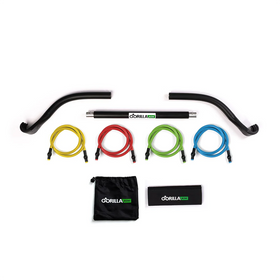
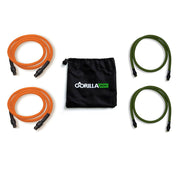
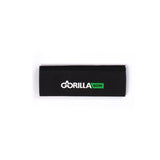
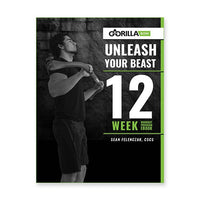
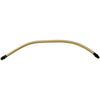



Leave a comment